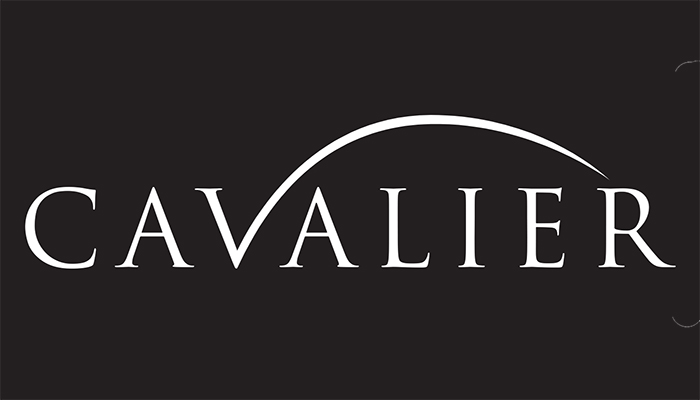Comprehensive Guide to First Gazette Notice for Compulsory Strike Off
Comprehensive Guide to First Gazette Notice for Compulsory Strike Off
Blog Article
Complying With Regulatory Commitments: Key Factors for Compulsory Strike off Implementation
Browsing the landscape of regulative obligations can be a complicated venture for companies. Making sure compliance with the required demands is paramount when it comes to the execution of obligatory strike off procedures - compulsory strike off. From precise documents techniques to positive interaction with regulatory authorities, there are crucial elements that organizations need to take into consideration to browse this procedure effectively. By recognizing the subtleties of regulative compliance and the ramifications of non-compliance, companies can safeguard their procedures and online reputation.

Regulatory Conformity Analysis
When carrying out a regulatory conformity analysis, it is important to methodically examine and examine all appropriate legislations, policies, and standards that refer to the details sector or procedure concerned. By extensively analyzing the lawful structure, companies can ensure that they understand their commitments and are outfitted to promote the essential standards set forth by regulative bodies.
During the analysis procedure, it is essential to determine any kind of gaps between governing demands and present methods. This space evaluation enables companies to determine areas of non-compliance and take corrective activities to minimize threats. first gazette notice for compulsory strike off. Performing a detailed review makes it possible for firms to develop internal controls and protocols that line up with regulative expectations.
In addition, a regulatory compliance analysis serves as a positive measure to prevent prospective offenses that might cause costly charges or reputational damages. By staying abreast of regulatory modifications and continuously examining their conformity status, organizations can cultivate a society of adherence to ethical criteria and lawful requirements. Inevitably, a thorough governing compliance assessment is foundational in promoting functional honesty and sustainability.
Paperwork and Record-Keeping
Making sure thorough paperwork and accurate record-keeping techniques is a foundation of regulatory conformity in any sector. Correct paperwork not just help in satisfying lawful needs but likewise serves as a crucial tool for internal monitoring and decision-making processes. Organizations must develop robust systems for recording key activities, transactions, and decisions to make certain transparency and accountability.
Keeping precise records is important for demonstrating conformity during regulatory audits or investigations. Records needs to be organized, easily available, and kept for the needed period based on governing guidelines. Implementing a central digital document management system can streamline record-keeping procedures, enhance data protection, and reduce the danger of details loss or meddling.
Normal audits of documents methods are essential to determine gaps or disparities that could bring about conformity issues. Educating employees on correct record-keeping treatments and data security procedures is also essential to support regulatory requirements. By focusing on careful documents and record-keeping, organizations can proactively reduce compliance risks and foster a society of liability and honesty within the business.
Timely Entry of Reports
Appropriate paperwork and record-keeping practices lay the structure for regulatory conformity; likewise, timely entry of reports is critical in demonstrating adherence to established methods and fulfilling reporting commitments. Timely entry of reports guarantees that governing bodies obtain updated and accurate details concerning the entity's operations, economic standing, and compliance with relevant regulations and laws.
Failure to submit reports promptly can cause penalties, penalties, or other enforcement activities. It can also raise uncertainties concerning the entity's overall conformity culture and administration methods. To assist in prompt entries, companies should establish clear reporting timelines, allocate enough resources for report prep work, and apply durable interior controls to guarantee and check target dates precision.
Furthermore, prompt submission of reports enhances transparency and responsibility, promoting depend on with great site stakeholders, including financiers, regulatory authorities, and the general public. It indicates a commitment to excellent governance practices and regulatory compliance, which can positively influence the entity's reputation and reputation in the marketplace. By focusing on the timely entry of reports, organizations demonstrate their devotion to running with honesty and based on relevant legislations and guidelines.
Financial Openness and Liability
Demonstrating financial openness and liability is important for promoting trust fund and reliability within an organization's stakeholder area. what is compulsory strike off. By providing clear and exact economic details, business can display their commitment to honest practices and sound governance. Transparency in financial coverage enables stakeholders to examine the organization's efficiency, make informed decisions, and hold management accountable for their actions
To guarantee monetary transparency, business ought to follow accounting standards and policies, precisely record monetary deals, and reveal details in a timely way. Regular audits by independent 3rd parties can better validate the precision and dependability of financial declarations. Furthermore, applying inner controls and partition of obligations can assist prevent fraudulence and mistakes, boosting overall responsibility.
Reliable interaction of financial details with yearly records, investor presentations, and stakeholder conferences is essential for maintaining transparency. Business should engage with stakeholders, address concerns, and respond to queries promptly to build count on and enhance partnerships. Inevitably, a commitment to economic transparency and liability not just fulfills governing demands yet likewise enhances the company's online reputation and sustainability.
Interaction With Regulatory Authorities

Moreover, positive interaction can aid deal with possible compliance issues prior to they escalate, consequently protecting against more considerable governing problems in the future. Routine dialogue with regulative authorities also allows companies to stay notified concerning any adjustments in policies or coverage demands, allowing them to adapt their methods accordingly. By keeping open lines of interaction and without delay addressing any kind of queries or demands from regulatory authorities, companies can navigate the regulatory landscape better have a peek at this site and support their commitment to compliance and liability.

Conclusion
In final thought, guaranteeing conformity with governing responsibilities is essential for the effective execution of mandatory strike off procedures. By carrying out regular evaluations, maintaining complete documentation, sending reports without delay, practicing financial openness, and communicating successfully with governing authorities, organizations can mitigate the threat of being or facing penalties struck off. It is critical for entities to maintain their responsibilities and comply with governing requirements to prevent any kind of negative repercussions.
Ensuring careful documents and accurate record-keeping practices is a keystone of governing conformity in any type of industry.Amidst the imperative of preserving economic transparency and liability, efficient interaction with regulatory authorities stands as a critical component in maintaining organizational compliance and stability. Timely and clear communication with get redirected here governing bodies fosters count on and shows a dedication to regulatory compliance, which is crucial for the smooth operation of any kind of company. Offering complete and precise info makes certain that governing bodies have a comprehensive understanding of the organization's activities and can make enlightened decisions regarding compliance problems.
By maintaining open lines of communication and without delay dealing with any questions or demands from regulative authorities, companies can browse the regulatory landscape much more effectively and maintain their commitment to conformity and responsibility.
Report this page